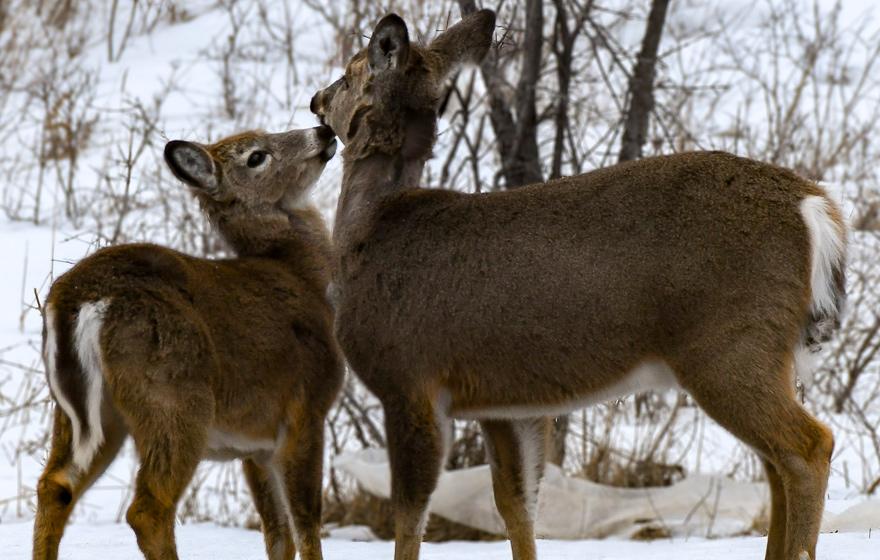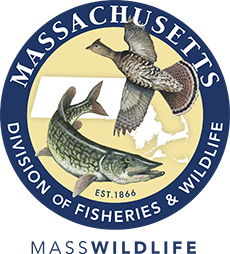- Division of Fisheries and Wildlife
Media Contact
Media Contact, MassWildlife

MassWildlife has been receiving inquiries from hunters and others regarding COVID-19 and its effect on deer and other wildlife. While experts are still learning about this virus, currently there is no evidence that wildlife might be a source of infection for people in the United States, and there is no evidence that you can get COVID-19 by preparing or eating food, including hunted wild game meat.
Research
As a novel emerging disease, research is ongoing for SARS-CoV-2, the virus that causes COVID-19, and its impacts on wildlife. Multiple studies have found SARS-CoV-2 antibodies in wild North American mammals including white-tailed deer. New studies are showing that wild deer have contracted multiple strains of COVID-19 from humans, and Ohio State University recently found active infection in wild Ohio deer using PCR tests. Experimental research with captive deer has shown that SARS-CoV-2 can spread among deer, however, deer are only contagious for a short duration (less than seven days).
Transmission Risks
The risk for transmission from deer to humans is likely very low due to the outdoor aspect of hunting and the short period of time deer are contagious with the virus. SARS-CoV-2 is primarily transmitted by inhaling aerosolized droplets. These droplets can come from respiration or from the digestive tract. Currently:
-
The transmission mode from humans to white-tailed deer is currently unknown.
-
There have been no known cases of humans contracting COVID-19 from deer.
-
There is no evidence people can contract COVID-19 by eating wild game.
Tips for Handling and Preparing Game
To minimize the transmission risk of diseases, MassWildlife always recommends hunters use best practices for processing game:
-
Avoid handling or consuming wild animals that appear sick or those found dead.
-
Wear gloves and a face shield when handling, field dressing, and processing game.
-
When possible, process your game outdoors or in a well-ventilated location.
-
Use caution and minimize contact with the brain or spinal tissues. Out of an abundance of caution for Covid-19, additional preventative measures include avoiding the head, lungs, and digestive tract.
-
Handle knives carefully to prevent accidental cuts.
-
Wash hands thoroughly with soap and warm water after handling carcasses and before and after handling meat.
-
Thoroughly sanitize all tools and work surfaces used during processing with a bleach solution (1 tablespoon of bleach to 1 gallon water). Consider keeping a separate set of knives used only for butchering game.
-
Cook game meat thoroughly to an internal temperature of 165°F to kill pathogens.
